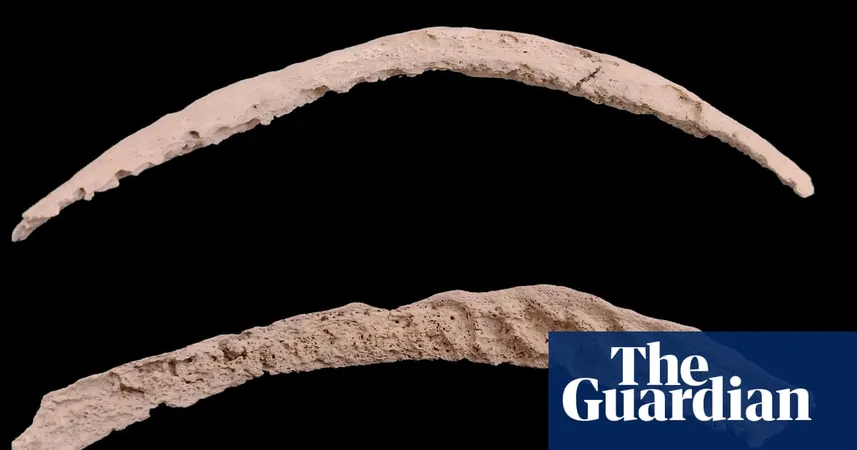
Ancient Bones Reveal Shocking Truth About Syphilis Origins!
2024-12-18
Author: Jia
Uncovering the Origins of Syphilis
In a captivating twist to the history of one of humanity's most infamous diseases, researchers have uncovered ancient DNA from skeletal remains in the Americas that suggests syphilis may have originated there long before it wreaked havoc in Europe.
The Historical Context
The story begins in 1494, when French King Charles VIII invaded Italy, leading to an outbreak of a mysterious and disfiguring disease in his army camps. This epidemic, which followed soldiers back to their homelands in Europe, is widely acknowledged as one of the first documented cases of syphilis. However, its exact origins have prompted fierce debates among historians and scientists alike. One faction insists the disease crossed the Atlantic with Christopher Columbus in 1493, while another group argues that it was already present in Europe.
Groundbreaking Research
Recent groundbreaking research published in Nature offers compelling evidence that may settle this debate. Scientists extracted ancient DNA from skeletal remains that predate Columbus’ first voyage. The identified genomes belong to a strain of the Treponema pallidum bacteria, the causative agent of syphilis, indicating that the roots of the disease are deeply entwined with the pre-Columbian Americas.
Findings by Dr. Kirsten Bos
Dr. Kirsten Bos, a leading scientist in molecular paleopathology at the Max Planck Institute for Evolutionary Anthropology, revealed, “We were able to reconstruct five genomes from these bones, and they are sister lineages to the modern strains of the bacterium circulating today. All evidence points to these strains emerging in the Americas.”
Significance of the Study
The remarkable study analyzed various skeletal remains, including bones sourced from modern-day Argentina, Chile, Mexico, and Peru, dating back nearly 9,000 years. This age suggests that human populations in the Americas were isolated and not yet in contact with the rest of the world.
Broader Implications
The implications of this research are significant. It indicates that diseases like syphilis, alongside its relatives such as yaws and bejel—which predominantly impact tropical regions—were already endemic in the Americas before the European conquests. These findings suggest a scenario in which syphilis traveled the globe as European explorers expanded their reach into the Americas and Africa.
Caution from the Researchers
Despite these revelations, Dr. Bos cautions that this isn’t the final chapter in the mystery. “We might not have solved the puzzle entirely, as there are still many overlapping questions that need answers,” she stated. “Our data sources are quite limited, and we aim to analyze them holistically and remain open-minded. The narrative will undoubtedly continue to provoke debate.”
Conclusion and Future Research
As the investigation into the historical nature of syphilis unfolds, it raises essential questions about the intersections of health, history, and culture that continue to impact societies today. Are you ready to dive deeper into this historical mystery and learn more about the ongoing research that could change our understanding of disease? Stay tuned for more updates!



 Brasil (PT)
Brasil (PT)
 Canada (EN)
Canada (EN)
 Chile (ES)
Chile (ES)
 España (ES)
España (ES)
 France (FR)
France (FR)
 Hong Kong (EN)
Hong Kong (EN)
 Italia (IT)
Italia (IT)
 日本 (JA)
日本 (JA)
 Magyarország (HU)
Magyarország (HU)
 Norge (NO)
Norge (NO)
 Polska (PL)
Polska (PL)
 Schweiz (DE)
Schweiz (DE)
 Singapore (EN)
Singapore (EN)
 Sverige (SV)
Sverige (SV)
 Suomi (FI)
Suomi (FI)
 Türkiye (TR)
Türkiye (TR)